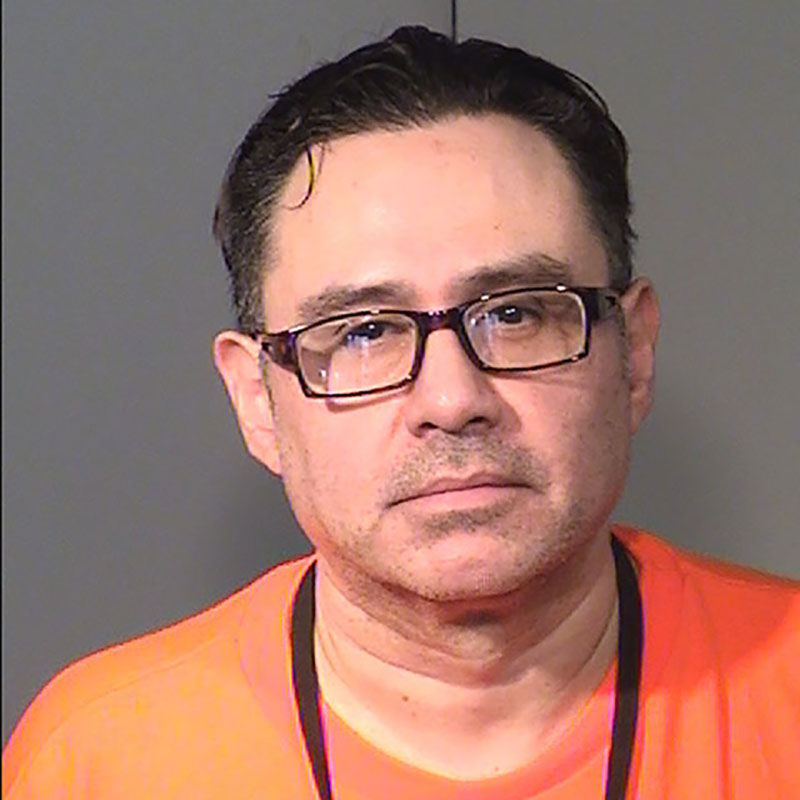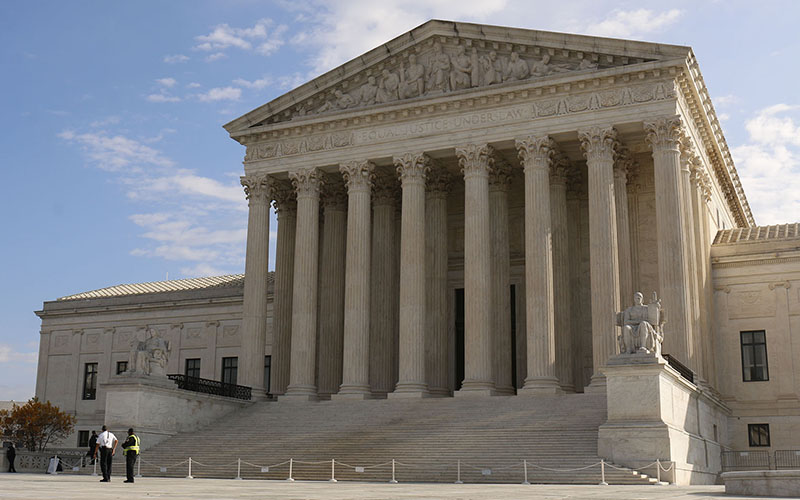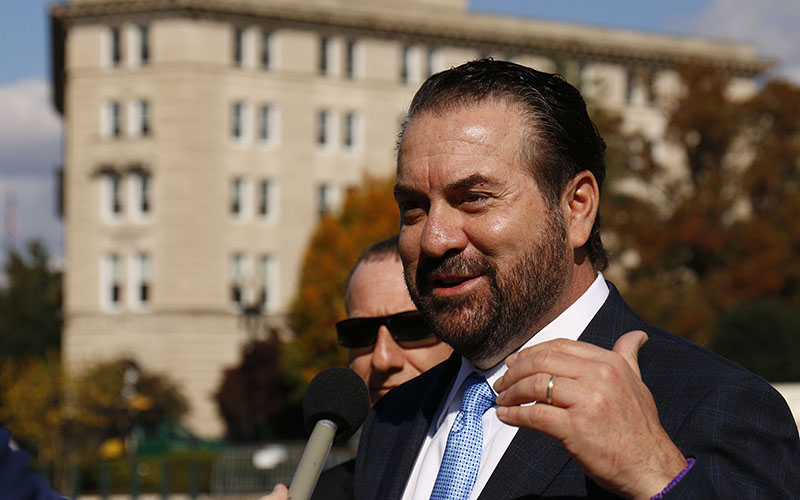WASHINGTON – Supreme Court justices challenged Arizona’s claim Tuesday that a death row inmate should not get a chance to appeal his sentence, based on what one justice called a “Kafkaesque” ruling by the Arizona Supreme Court.
John Montenegro Cruz said he was denied the opportunity to tell the jurors who sentenced him to death in 2005 that he would be ineligible for parole if sentenced to life – despite the fact that the U.S. Supreme Court granted that right in its 1994 Simmons ruling.
Cruz applied again for a new sentencing hearing after the high court in 2016 specifically said Arizona needed to apply Simmons, but Cruz was turned down again by Arizona courts that said he failed to raise that defense the first time.
“I think … Kafka would have loved this,” said Justice Elena Kagan. “Cruz loses his Simmons claims on direct appeal because the Arizona courts say point-blank Simmons never applied in Arizona. And then he loses the next time around because the Arizona courts say Simmons always applies.”
But Arizona Attorney General Mark Brnovich, speaking outside the court, defended Arizona’s position, saying the case “really is an issue about interpreting state law procedures.”
“I think Justice Kagan was focusing on the wrong issues,” Brnovich said. “Bottom line is Arizona doesn’t even have to offer a post-conviction relief, and yet, now we’re being punished” for doing so.

John Montenegro Cruz has been on Arizona’s death row since 2005 for the 2003 killing of a Tucson police officer. Cruz claims he deserves a new sentencing hearing in that case. (Photo courtesy Arizona Department of Corrections, Rehabilitation and Reentry)
The case began on May 26, 2003, when Cruz shot Tucson Police Officer Patrick Hardesty “in the line of duty by shooting him five times at point-blank range,” said Arizona Chief Deputy Attorney General Joseph Kanefield, who argued the case.
Cruz was convicted for Hardesty’s murder, and under Arizona law he could be sentenced to death or to life without any chance of parole. But at sentencing in 2005, the jury was erroneously told that he could be eligible for parole after 25 years, and it sentenced him to death.
“Cruz’s jury labored under a seriously wrong idea,” said his attorney, Neal Katyal, in arguments Tuesday. He said the jury foreman later said many of the jurors “wanted a reason to be lenient … but we were not given an option to vote for life in prison without the possibility of parole.”
The Arizona Supreme Court rejected Cruz’s appeal in 2008, saying Simmons did not apply in the state.
“In the end, this is about one thing: Making sure Simmons’ rights aren’t extended to Cruz and people like him, even though we know, in this very case, from the jury foreman who would’ve made a massive difference” Katyal said.
Cruz applied for another appeal after the Supreme Court, in 2016, ruled in Lynch v. Arizona that Arizona courts had to apply the Simmons rule allowing capital defendants to tell jurors they could be sentenced to life without parole.
Cruz was turned down again, with the Arizona Supreme Court ruling that Lynch was not a “significant change” in law that would allow for another appeal under state court rules.
Kanefield defended the finding, saying the state’s “indisputable interest in finality of criminal convictions can only yield to those rare decisions announcing a new rule of law or a significant statutory or constitutional amendment.” Cruz’s case did not meet those standards, he said.
Justices appeared to struggle with that reasoning, which they referred to several times as “hair-splitting.”
Justice Ketanji Brown Jackson asked how the state defined a “significant change” in law if it was not the reversal under Lynch, while Justice Amy Coney Barrett said the state was making an “artificial” distinction between the change in the underlying law and the application of it.
Kagan said state courts “contort” their rules to reject Simmons and Lynch, and that the state still argued in its briefs for Cruz that those cases were wrongly decided.
“It sounds like you’re thumbing your nose at us,” she told Kanefield.
It is unclear how many of the 111 inmates on Arizona’s death row could be affected by a ruling in Cruz’s case, but Katyal said at least 12 had their appeals under Simmons rejected. And, he said, six inmates have appeals pending that raise the same issue Cruz raised before the Supreme Court.
Justices noted that no other states filed briefs in support of Arizona – the only state that has rejected Simmons. Jackson was concerned that the court could be setting “a roadmap” for other states to defy its rulings if it decided in Arizona’s favor.
“What I’m a little worried about is that that ultimately … amounts to Arizona having said no one convicted between 1994 and 2016 is going to get the benefit of Simmons,” Jackson said. “And that is a little troubling because why couldn’t another state do the same thing with respect to a criminal law rule … of this Court that they don’t like?”




